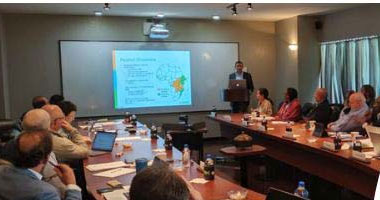Big Bang Disruption in Healthcare

Lan Liu,
PM Intern,TuSimple
A common scenario in a Chinese pediatrics building at midnight looks like this — baby cries, distraught parents, exhausted doctors with bare sleep, and a long long wait line. In China, there is only 0.53 doctor on average for every 1000 children from age 0 to 14. This means each doctor has to take care of 2,000 kids. Unlike for adults, the diagnosis process for kids takes much more time due to their inability to express symptom properly.
This is only a peek into the current healthcare industry in China. Doctors in popular public hospitals can barely take a rest because of the ever-lasting high demands. In the remote area, lack of infrastructure and well-educated doctors forced people to rush into first-tier cities, making it worse for their citizens to get decent treatments as needed. The difficulty and tiredness for doctoring become the shared gloomy memory of millions of homes.
Healthcare problem exists in different forms around the world. In America, the frustration is boiling over as well — prodding doctors, endless tests, baffling jargon, rising costs and long waits. My roommate said when she caught a cold, she preferred to drink more water for the cure instead of looking for a doctor.
In the business perspective, the biggest problem of the current healthcare industry is that patient’s needs haven’t been satisfied. They lack domain knowledge to understand the diseases, they can’t control the doctoring process while they have to spend time, energy and ever-increasing money to endure such unsatisfactory experience.
Artificial Intelligence and Data Analytics will help change the whole situation. The disruption in the healthcare industry is now happening.
A major change in the new era is the shift of emphasis from providers to patients. Traditionally, people can only listen to doctors’ recommendation and take medicines according to prescriptions, which, largely depends on the experience of the doctor. But in the coming future, patients will be equipped with data and tools to proactively manage and monitor their own health condition.
Now 95% of the Chinese population have smartphones. People are aware of the importance of monitoring their health condition closely. Data such as the blood pressure, the sleep trends and heartbeats can be recorded as personal health profile in the cloud through Apps and wearables, and the more data a patient provides, the more accuracy the treatment can be. With regular health data recording, the personalized treatment package can be provided through medical algorithms training with much more powerful results. The generation of data from patients can help AIs provide an automated diagnosis by spotting behavioral traits, and the aggregation of data can help people find similar cases and learn from others.
Self-controlled healthcare is a major trend that has infinite potential to explore. Researchers are underway to see whether various diseases can be diagnosed and analyzed without using traditional physical tests. Companies such as Apple and Alphabet are investing billions of dollars to seize the emerging market.
Of course, not everyone wants to or needs to take active control of their health care; a large proportion of people still needs professionals to handle everything. No problem. Artificial Intelligence and Data Analytics can also be adopted in hospitals and clinics with excellent patient outcomes, reduced treatment costs and elimination of unnecessary procedures. For example, Cognitive System with real-time 3D images can now diagnose chronic symptoms in a few minutes. A startup, Butterfly Network, can now provide 3D-ultrasound tool creating clear 3D medical images and realize automatic diagnosis by sending data to cloud database to identify characteristics.
Equipped with technology, hospitals can improve efficiency by providing easier workflows aligned with patient-tailored treatment plans. According to Forbes, the AI market for healthcare applications is expected to achieve rapid adoption globally, with a CAGR of 42% until 2021. By 2025, AI systems are expected to be implemented in 90% of the U.S. and 60% of the global hospitals and insurance companies.
As one of the most regulated industries itself, the healthcare industry has historically remained unaffected by the transformative impacts of exponential technologies, given heavy regulation and reliance on expert labor. However, where there are unmet requirements, there is a solution. Even though healthcare industry is one of the hardest to tackle, it is still vulnerable in the adventure of big bang disruption. It is unlikely that the disruption will suddenly happen at national level. However, the changes are happening in the value chain of healthcare one by one that a major disruption is unlikely to be found.
In the coming decades, A.I technology and big data analytics will have the biggest potential to disrupt healthcare and companies need to prepare for the big bang disruption and establish foresight to anticipate where markets are heading.
Subscribe to Industry Era
News
This Apple Watch Case Could Kill All of Those Wannabe AI Devices
Google defends AI search results after they told us to put glue on pizza
Google scales back AI search answers after it told users to eat glue
FAA won't approve increased 737 Max production in near future
Thursday was a sour day for the US economy — with an important silver lining
OPEC+ working on complex production cut deal for 2024-2025, sources say
Stock futures inch lower as investors review earnings, brace for inflation report: Live updates
Salesforce Shares Plunge by Most Since 2008 After Weak Outlook
Jeep’s Wagoneer S Trailhawk concept teases a fully electric off-roader
Gap’s stock jumps 23% as the retailer swings to profit and raises guidance
Medline recalls 1.5 million bed rails linked to deaths of 2 women
Oil falls as Fed policymakers look to maintain rate cuts, gasoline stocks rise










